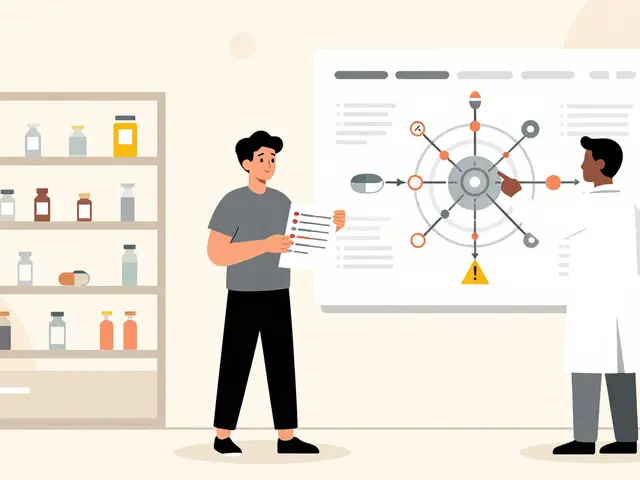Allergy Medicine: What You Need to Know
If you’ve ever sneezed through a meeting or watched your eyes water on a hike, you already know how annoying allergies can be. The good news? A range of allergy medicines can keep those symptoms in check, and you don’t need a pharmacy degree to pick the right one.
Allergy meds fall into three main groups: antihistamines, decongestants, and nasal corticosteroids. Antihistamines block the chemical that makes you itch and sneeze; they come as pills, liquids, or even fast‑acting nasal sprays. Decongestants shrink swollen blood vessels in your nose so you can breathe easier, but they’re best for short‑term use because they can raise blood pressure. Nasal steroids work on the inflammation itself, offering long‑lasting relief for chronic sniffles.
When choosing a product, think about when and where your symptoms hit hardest. Seasonal pollen sufferers often swear by daily antihistamines like cetirizine or loratadine, while people with occasional colds might reach for an oral decongestant just once or twice. If you’ve tried the over‑the‑counter crowd and still feel miserable, a prescription nasal spray could be your next step.
Top Over‑the‑Counter Options
Here are three go‑to OTC picks that cover most allergy scenarios:
- Cetirizine (Zyrtec) – works fast, usually within an hour, and doesn’t make you drowsy for many users.
- Loratadine (Claritin) – a solid all‑day option with minimal sleepiness.
- Fluticasone nasal spray (Flonase) – reduces swelling inside the nose; use it daily for best results.
All three are widely available online, but shop only from reputable pharmacies that require a prescription verification step. Look for clear contact info, secure payment pages, and reviews that talk about product authenticity.
When to See a Doctor
If you notice any of these signs, it’s time to get professional help:
- Symptoms last more than two weeks despite regular OTC use.
- You experience severe itching, swelling, or trouble breathing.
- Your allergy meds cause side effects like rapid heartbeat, extreme drowsiness, or confusion.
A doctor can prescribe stronger antihistamines, leukotriene modifiers, or immunotherapy shots that change how your body reacts to allergens over time. They’ll also check for interactions if you’re on other medications.
Buying allergy meds online is convenient, but safety comes first. Verify the pharmacy’s licensing, read their privacy policy, and never share personal health info on unsecured sites. When in doubt, order from a well‑known platform that partners with licensed pharmacies.
Bottom line: knowing your symptom pattern, picking the right drug class, and buying from trusted sources keeps you breathing easy without surprise side effects. Keep this guide handy next time allergies try to crash your day.
- By Percival Harrington
- /
- 13 Jun 2025
Allegra Allergy Relief: What You Need To Know In 2025
Wondering if Allegra is still the go-to for allergy relief in 2025? This deep dive covers how Allegra works, its safety, effectiveness, and practical tips for managing allergies. You'll find up-to-date facts, answers to common questions, and real strategies to get the best out of your allergy medicine. No confusing terms, just clear info.


